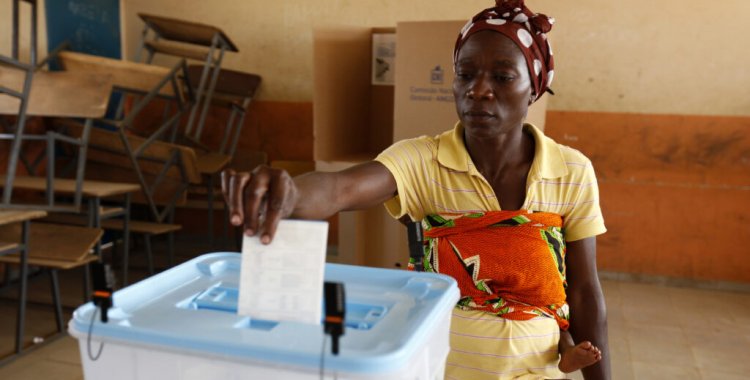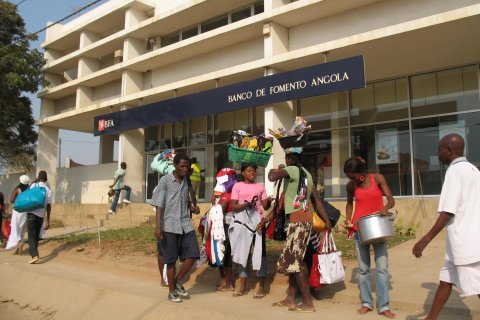The document, to which the Lusa agency had access and which will be presented this Thursday night in a videoconference organized by the Angolan digital channel Camunda News, considers two scenarios for the vote.
"The first, and most likely, is that the MPLA wins the elections, manipulating the electoral and justice institutions and benefiting from bias. This can cause a popular uprising that could escalate into post-election violence. The second scenario, less likely, it is a UNITA victory, which would lead to some conservative groups within the MPLA to refuse to transfer power", reads the document, written by Borges Nhamirre, jurist and researcher at the Center for Public Integrity of Mozambique and consultant to the ISS.
"Mediation will be necessary to avoid a probable violent post-election conflict", reiterates the author of the document.
Entitled "Free and Fair Elections? Angola's Uneven Field", the report argues that the government of the Popular Movement for the Liberation of Angola (MPLA), in power since independence in 1975, "faces serious opposition".
"However, the highly unequal political landscape still favors the ruling party. Free, fair and credible votes will depend on the application of the Southern African Development Community (SADC) principles and guidelines.
According to Borges Nhamirre, the elections will take place "in a highly unequal scenario that favors the ruling party [MPLA]. The state press is controlled by the government and the ruling party, and often publishes information that is favorable to them. Constitutional Court [which has the constitutional competence of an electoral court] has already proven that it is a partisan, adopting decisions that harm opposition parties and their candidates".
The ISS consultant denounces, on the other hand, that the recommendations made in the previous elections, in 2017, by the SADC Election Observation Mission to Angola and the Angola Electoral Observatory "have not yet been put into practice".
Another recommendation that was not followed by the Angolan authorities has to do with the preparation of the list of voters, in charge of the Ministry of Territory Administration which, as it is a government department, "contradicts the recommendations of SADC", highlights Borges Nhamirre.
Regarding election observation, the report recalls that the National Electoral Commission (CNE) imposed a maximum of 2000 national observers to monitor more than 26,480 polling stations, including the diaspora.
For Borge Nhamirre, the limit of three observers accredited by a non-governmental organization (NGO) for each of the country's 18 provinces "will prevent" these organizations from "carrying out an adequate parallel count of votes".
The recent legal changes that were approved by parliament, where the MPLA has a comfortable majority corresponding to the 61.07 percent obtained in 2017, and which stipulated that the counting of votes will, this time, be done in Luanda, "are highly problematic and undermine accountability and transparency".
In the recommendations presented in the report, Borges Nhamirre distributes them to the African Union (AU) and the international community, SADC and the Government of Angola.
The AU and the international community recommend that they urge the Angolan government "to respect freedom of expression and human rights and avoid cutting off Internet access during voting and protests".
To SADC, that it "urge the Angolan government to apply the recommendations of the Electoral Observation Mission (...) that allows for the independent validation of the list of voters".
Borges Nhamirre also recommends that SADC urge both the MPLA and UNITA and other parties and coalitions "to avoid hate speech that could incite violence".
To the Government of Angola, Borges Nhamirre asks that it "stop instrumentalizing the state press" and ensure that the electoral management authorities "respect the law and the Constitution and practice transparency to guarantee the trust of candidates and citizens".
The last recommendation to the Government of Angola is to "allow the population to comment freely on the processing and transmission of election results" and to sensitize the CEN to "eliminate the barrier" of 2000 Angolan observers and authorize the monitoring and observation of the elections.







